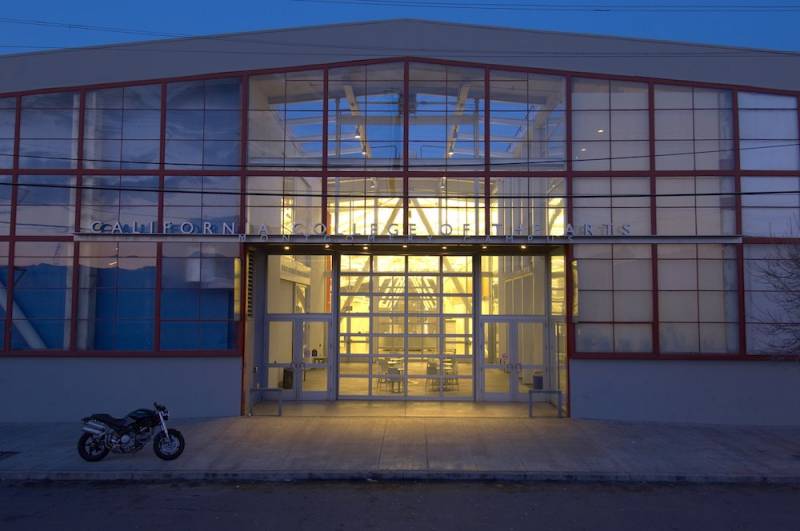Six weeks ago, as the novel coronavirus started to wreak havoc on higher education, the labor union representing adjunct professors at California College of the Arts proposed negotiating the terms of online teaching as well as COVID 19-related sick leave and other benefits.
CCA Delays COVID-19 Safety, Remote Work Negotiations in Union Dispute

Union leadership expected to quickly reach an emergency agreement between faculty and the school administration, especially after the private art and design college approved a nearly identical proposal for union staff in a separate negotiation.
But California College of the Arts (CCA) leadership has so far refused to negotiate with the adjunct union, which represents 70 percent of the school’s overall teaching staff, igniting a tense dispute.
School leadership has accused the adjunct union of soliciting a work-stoppage by sharing the student union’s request to have representatives address online classes, diverting resources from the negotiations. The adjuncts in turn say the administration is seizing on a public health crisis to divide the faculty union from its members and students in an attack on academic freedom.
“It’s an outrageous refusal to bargain over health and safety issues on the grounds that an email represents an illegal work stoppage,” Noga Wizansky, a CCA adjunct and union steward, said in an interview. School leadership’s real aim, according to adjunct union leaders, is to deter teachers and students from sharing information and mounting joint campaigns together.
Nato Green, an SEIU Local 1021 negotiator, said in a statement that it’s “shocking and bizarre” for the CCA administration “to accuse our members of a ‘work stoppage’ of 5-10 minutes and to claim that they are incapable of dealing with any other pressing labor relations issue because of it.
“During the biggest public health and economic crisis in a century, CCA should focus on addressing the urgent challenges facing all of us instead of wasting energy meddling in the free speech rights of students, teachers and staff who are working together to make things better.”
Ann Wiens, CCA’s vice president of marketing and communications, said in a statement that she’s unable to comment on topics under discussion with the union. Wiens said the administration hopes the agreement with college staff can serve as a model for a similar agreement with adjunct faculty, and that in the meantime the college is adhering to existing workplace safety guidelines.
“Instructors frequently invite guest lecturers or other visitors to participate in their classes in support of learning outcomes, but it is not appropriate to take class time away from the students enrolled in the course for presentations unrelated to the course content,” Wiens said.
The conflict comes at a vulnerable time for CCA. The school is leaving its historic Oakland campus to consolidate in San Francisco, stirring anxieties about a shift from studio arts to design and potential workforce reductions. A related plan to begin scheduling classes on Saturdays, first announced last fall, has also proved controversial among faculty and staff.
Like colleges everywhere, CCA now faces discontent with the pivot to online instruction and reductions in other services, plus uncertainty about future enrollment. A petition for a partial tuition refund launched in March and circulated by the student union has garnered more than 1,000 signatures. And on Friday, CCA announced furloughs affecting more than 60 workers.
In an April 21 email, adjunct union leadership notified members that the student union, which operates without CCA’s formal recognition, wanted to have representatives briefly visit online classes.
The idea, according to recent graduate and student union organizer Yuri Knighten, was to broaden awareness of the student union as an information hub. “It wasn’t a campaign against school leadership at all,” Knighten said.
Yet school leadership “responded ferociously,” Wizanksy said. Julianne Kirgis, the associate provost, on April 23 emailed Wizansky and other members of the adjunct union’s Labor Management Committee to demand the letter’s withdrawal. Soliciting teachers to have student union representatives address their classes, Kirgis wrote, violates the adjunct union’s contract.
Program chairs then sent an email discouraging adjuncts from hosting student union representatives; only a handful hosted the visits. Still, the adjunct union declined to withdraw the letter, and a May 12 meeting between the Labor Management Committee and school leadership that was intended to resolve the conflict only sharpened differences, according to Wizansky.
Meanwhile, the adjuncts’ COVID-19 safety and remote work proposal—a “side letter,” in union terminology, meant to address conditions not anticipated by a contract—remains unaddressed.
The April 10 draft, reviewed by KQED, aims to ensure teachers have sufficient training and equipment to provide online instruction, and also to solidify benefits and paid leave eligibility in the event of contracting COVID-19 or caring for a family member sick with the virus.
The adjunct union’s current contract expires June 30.

